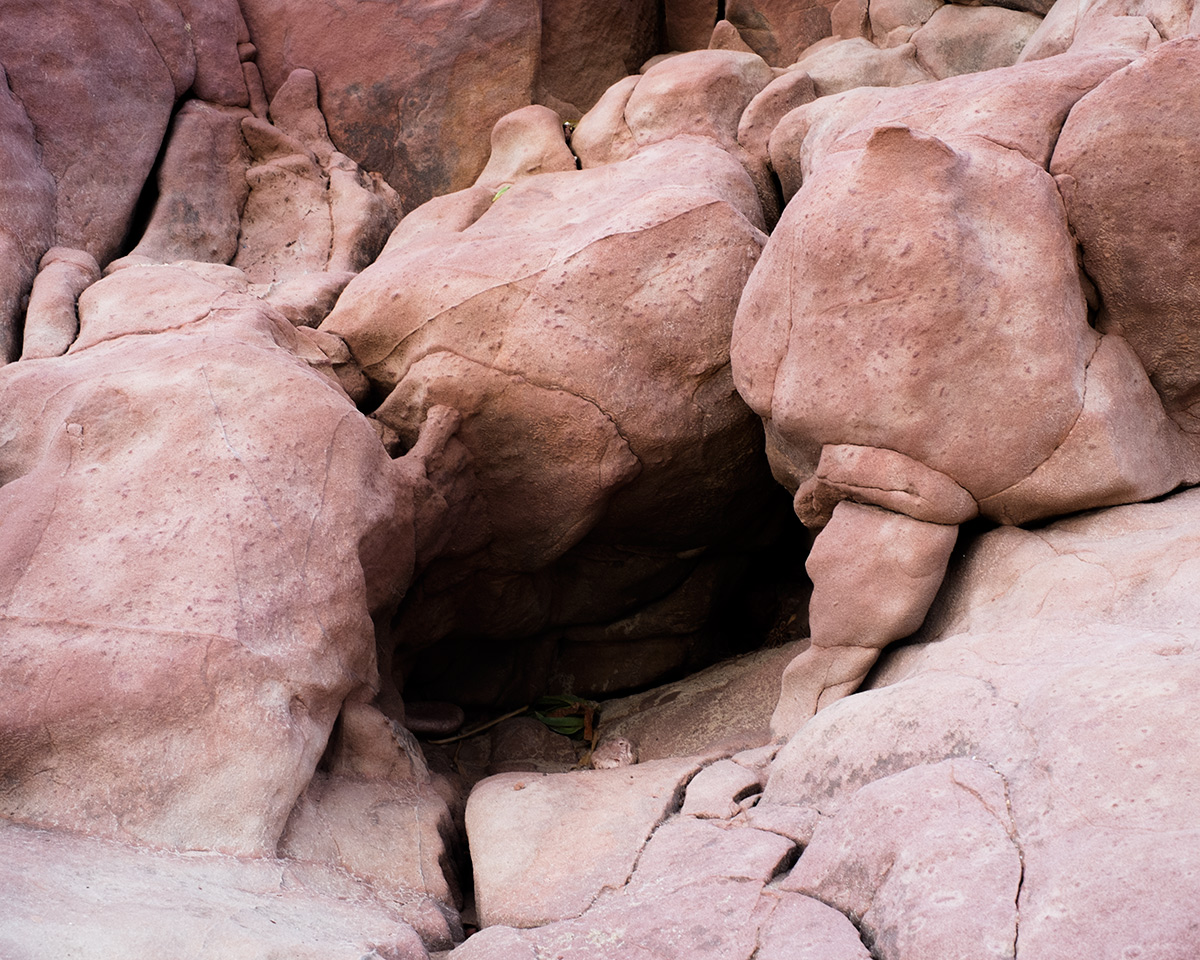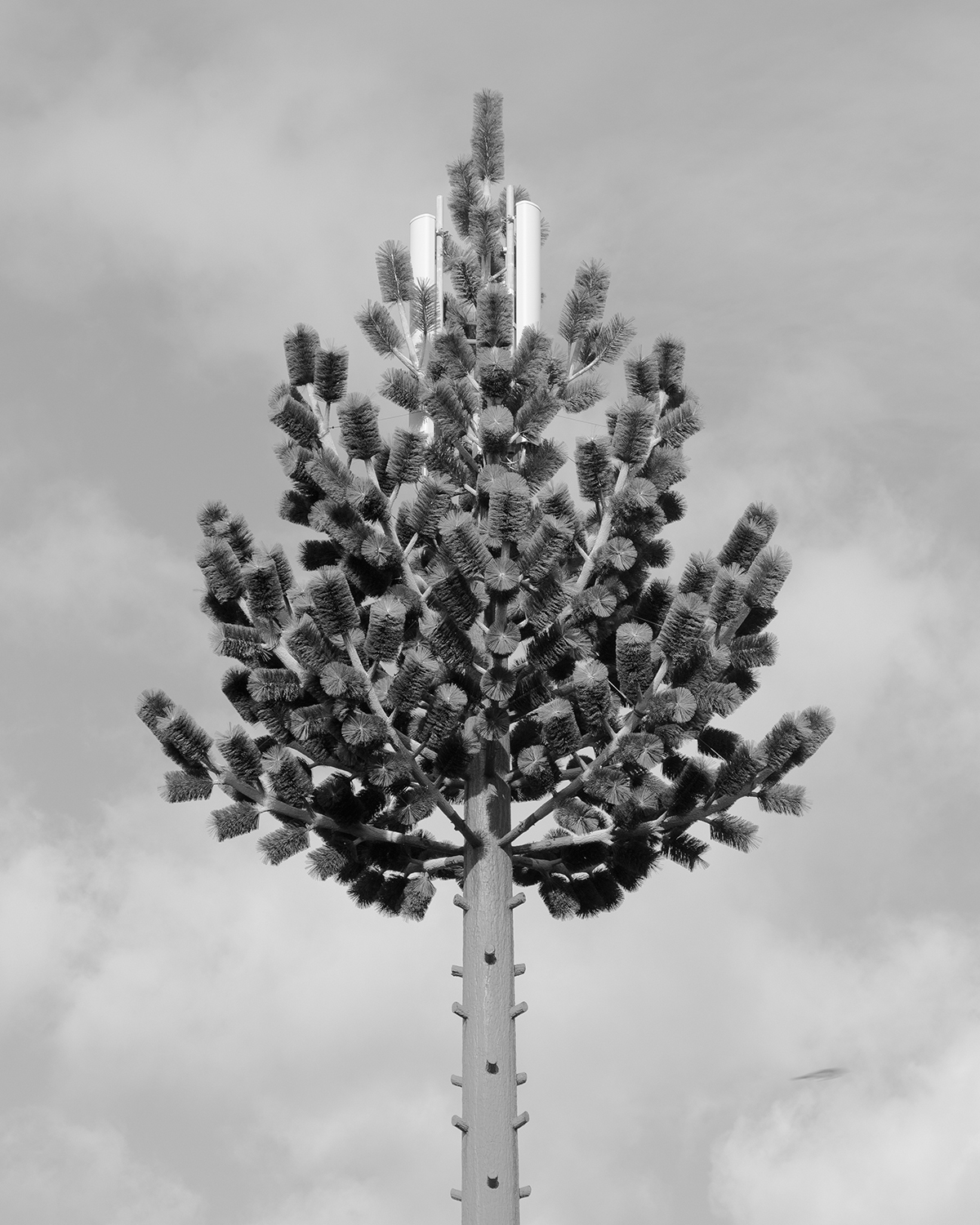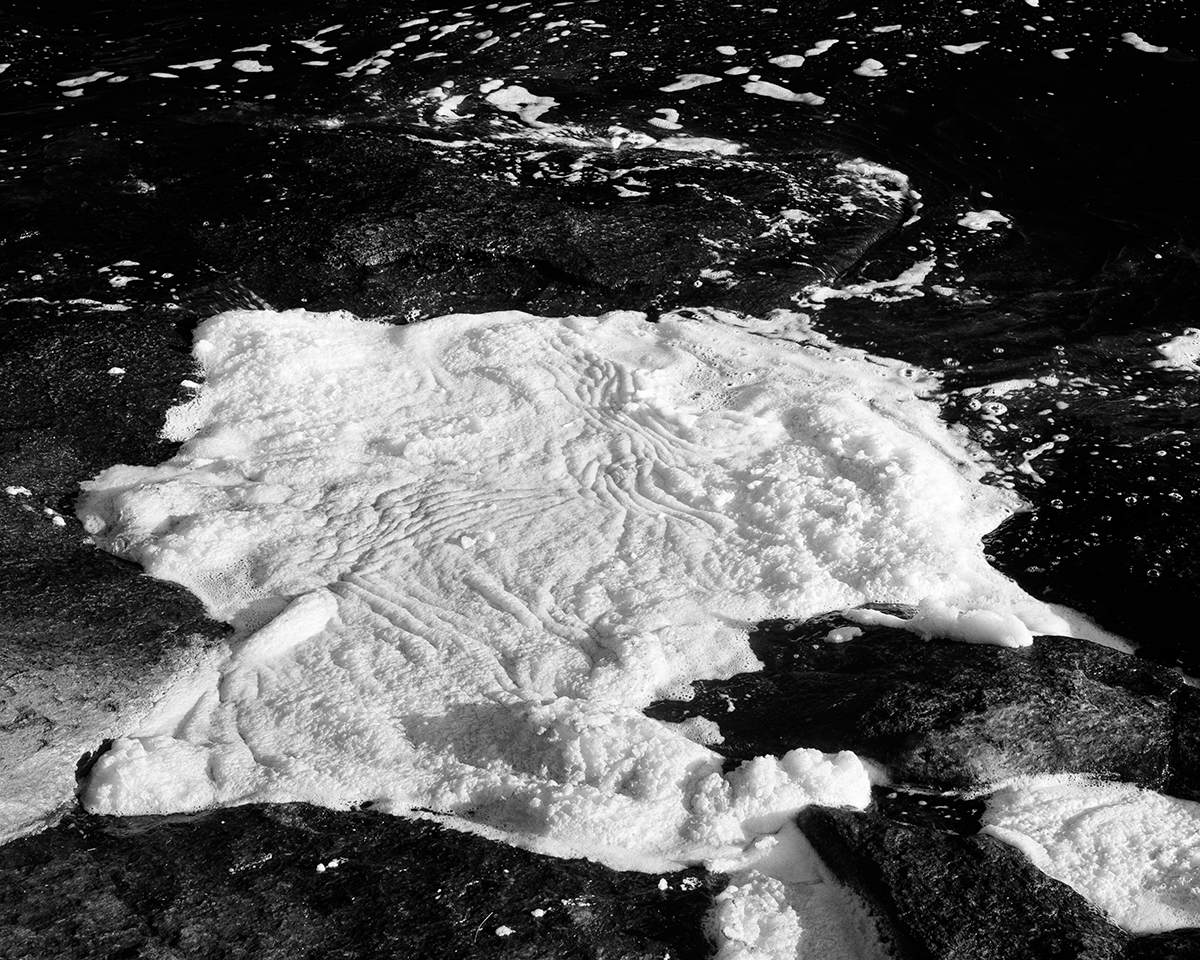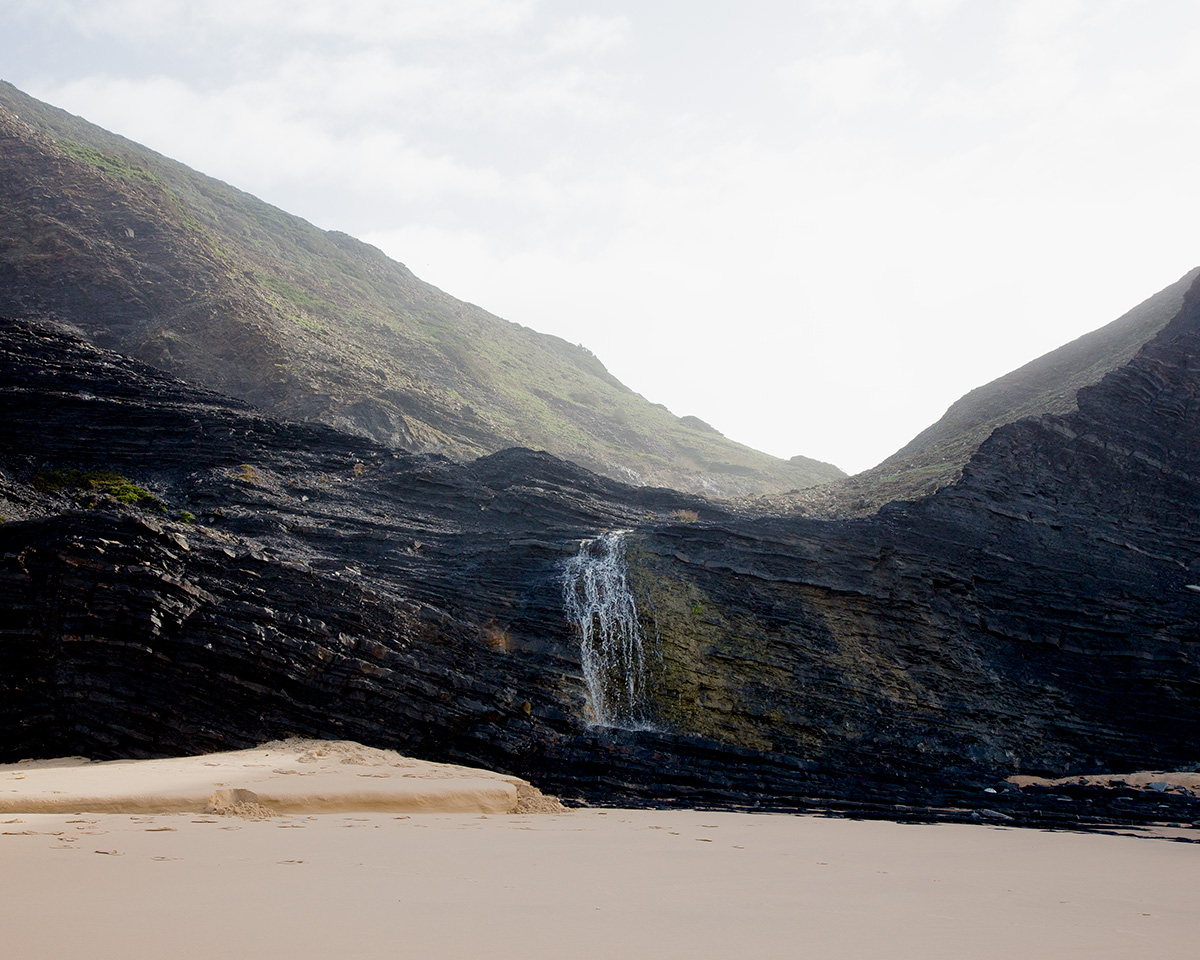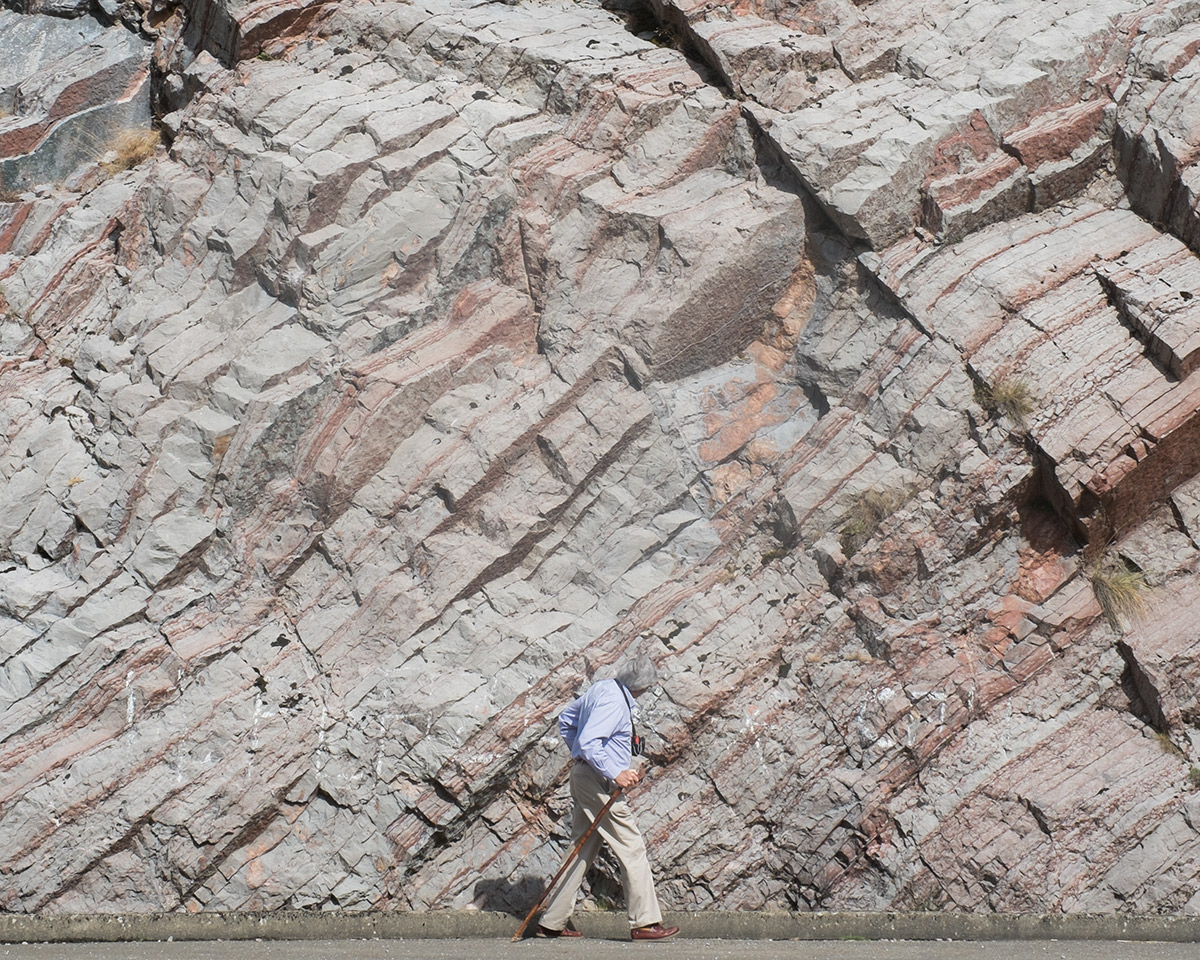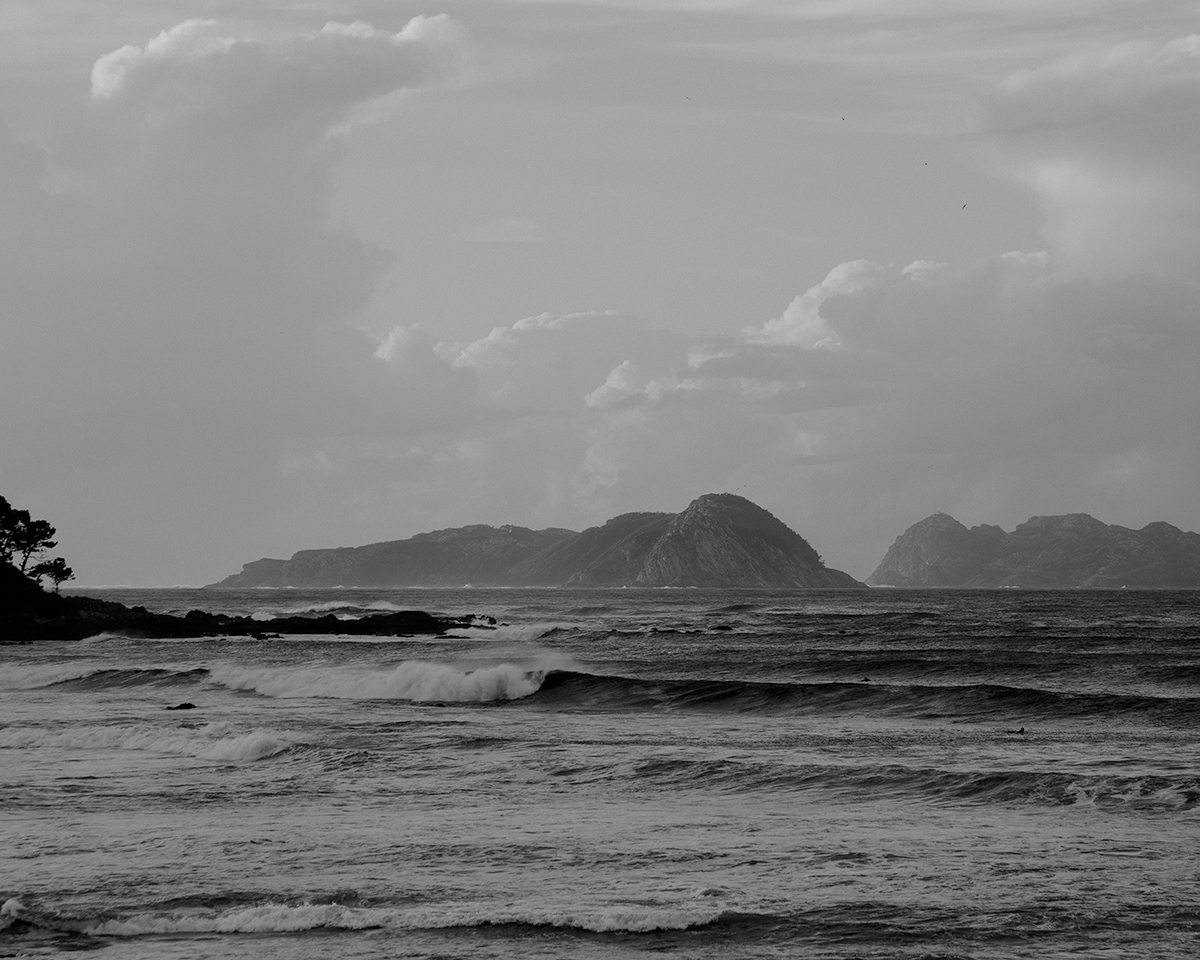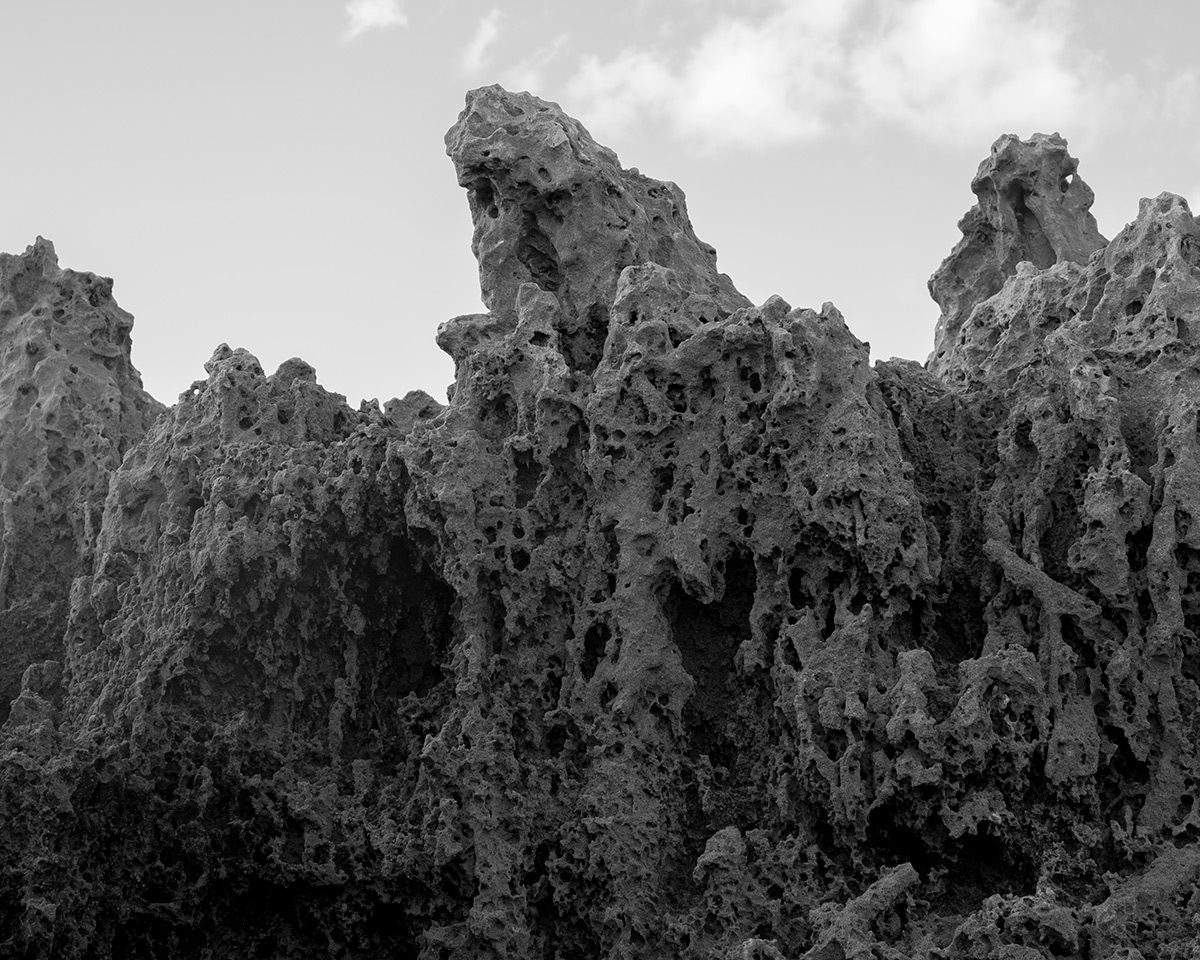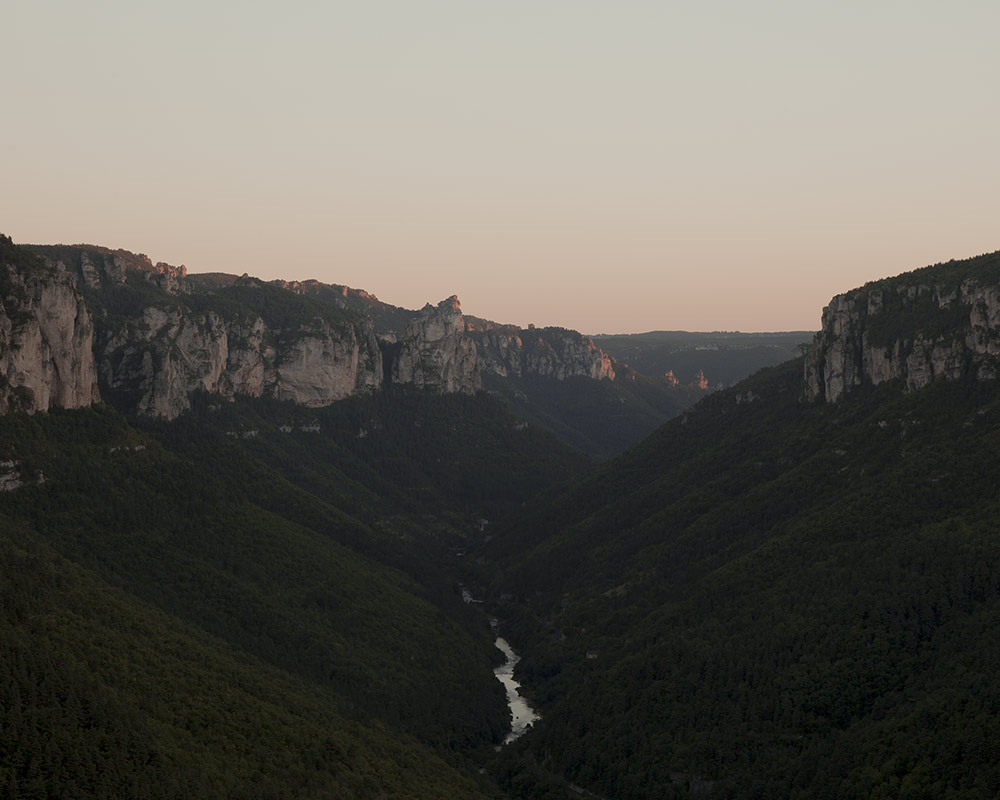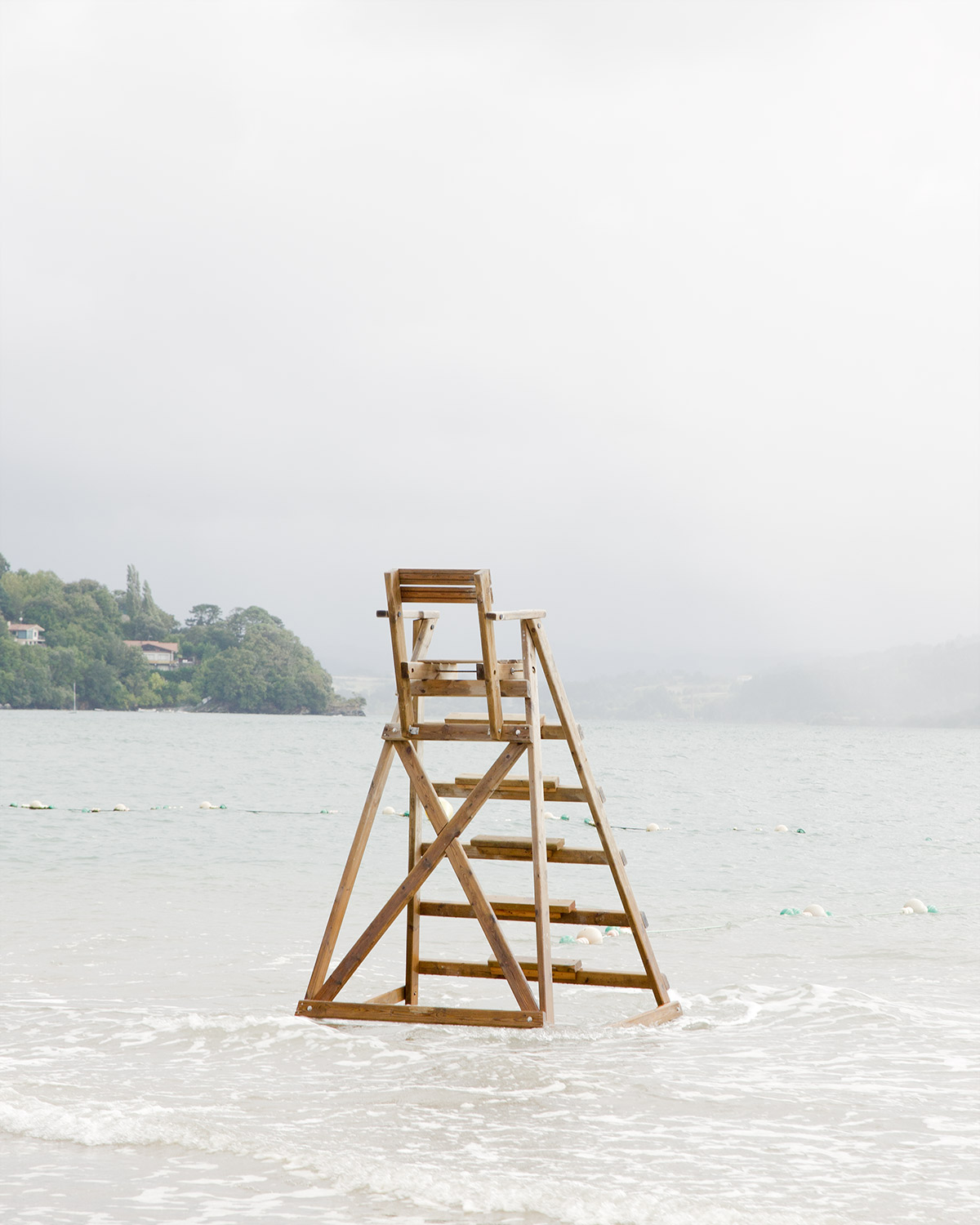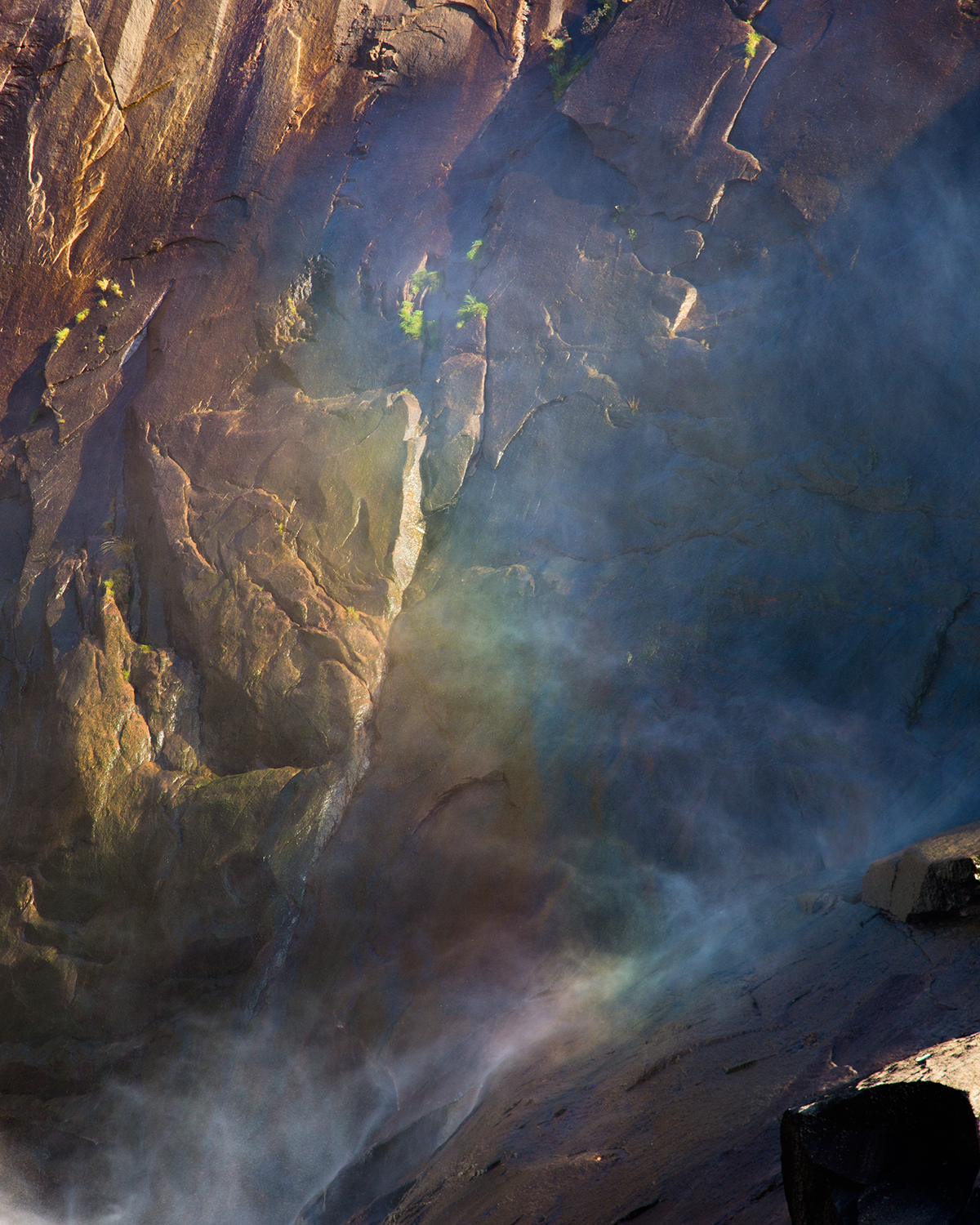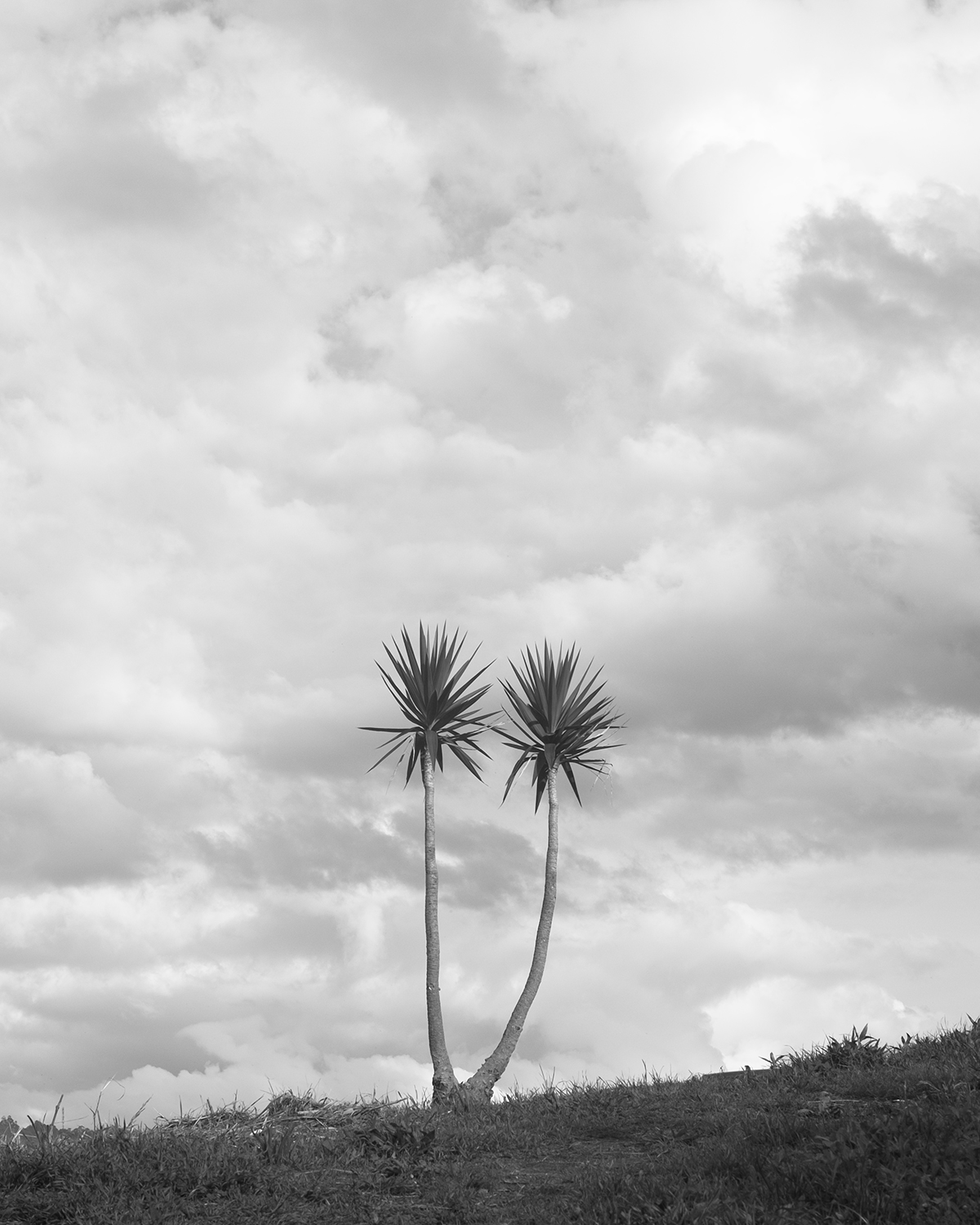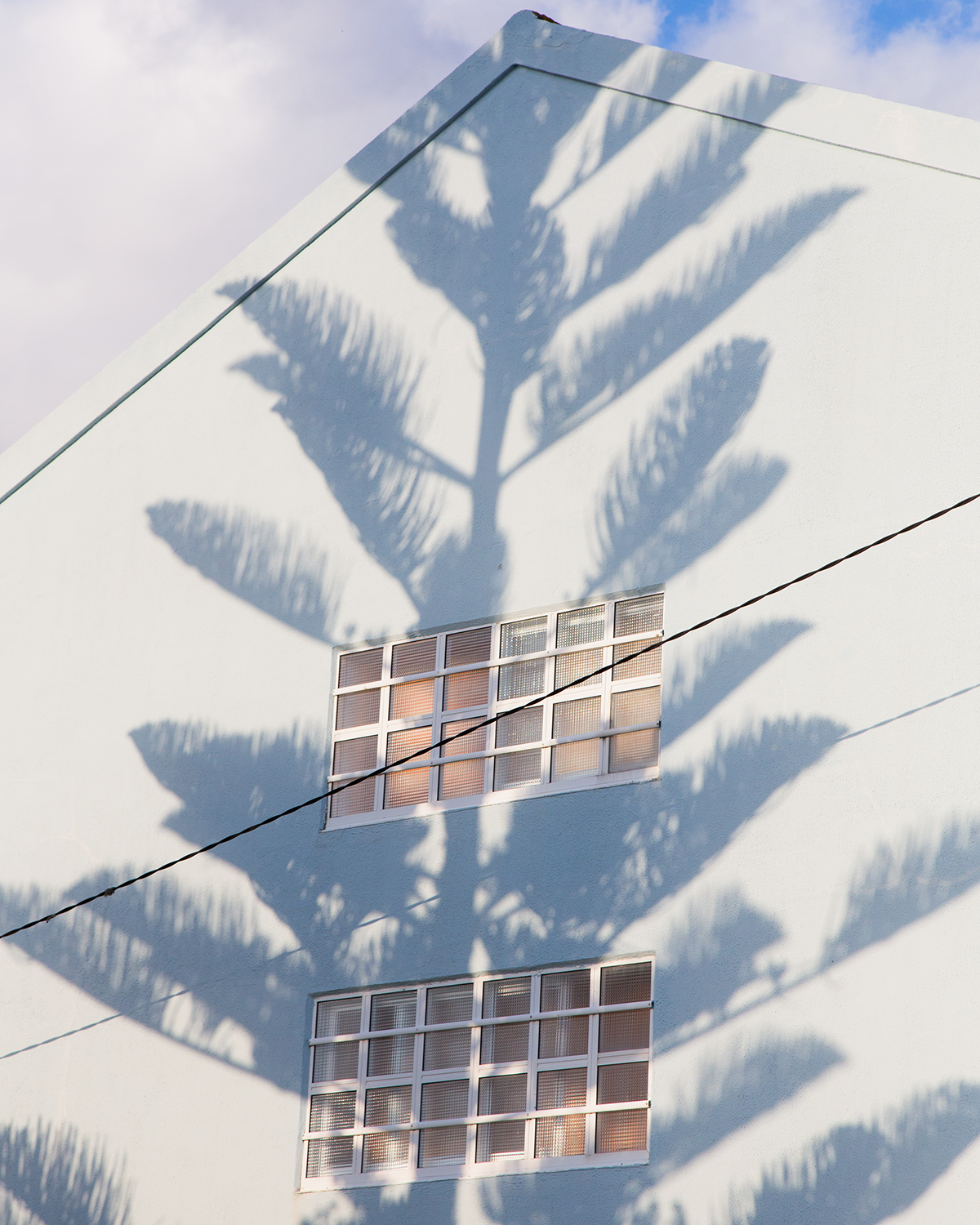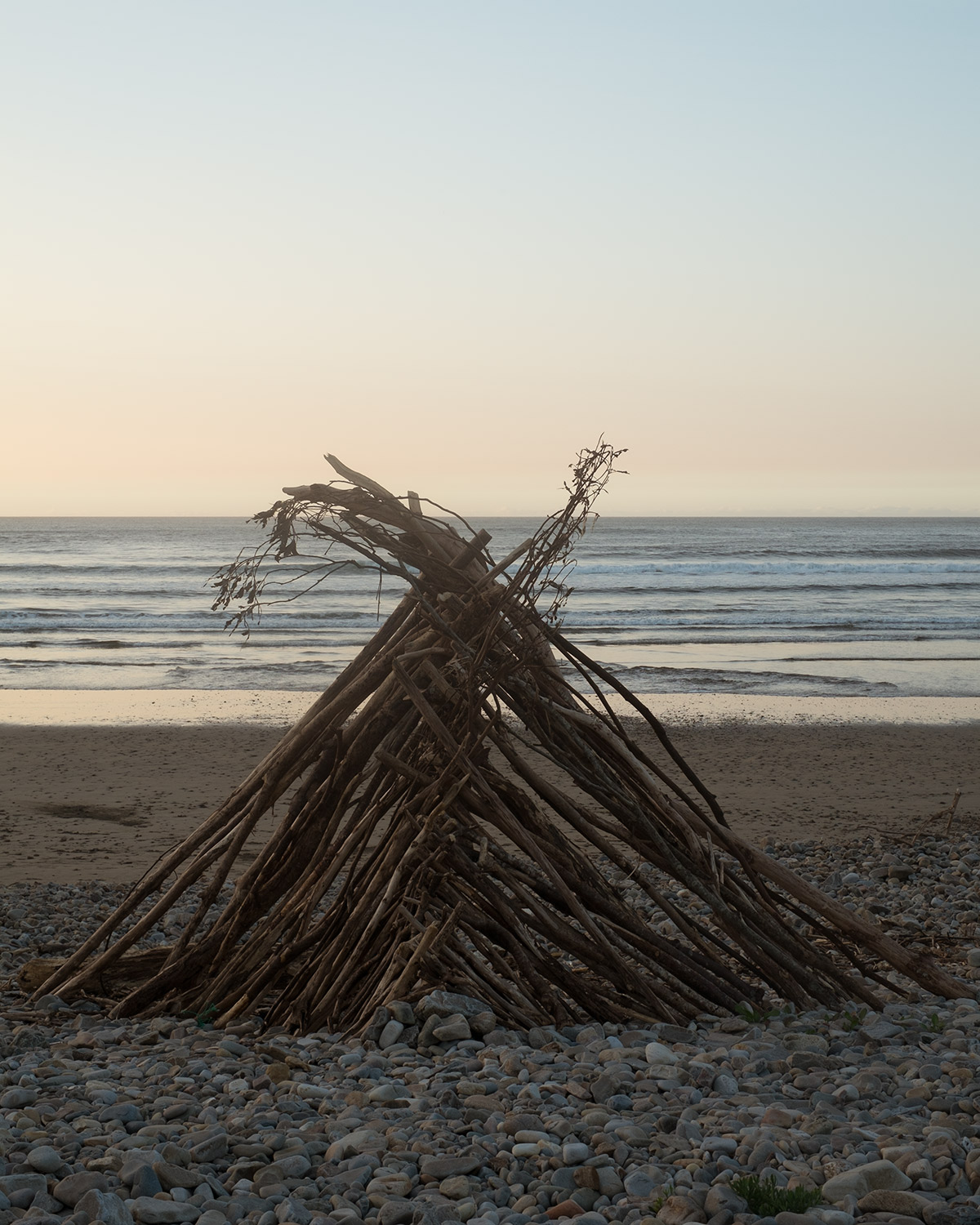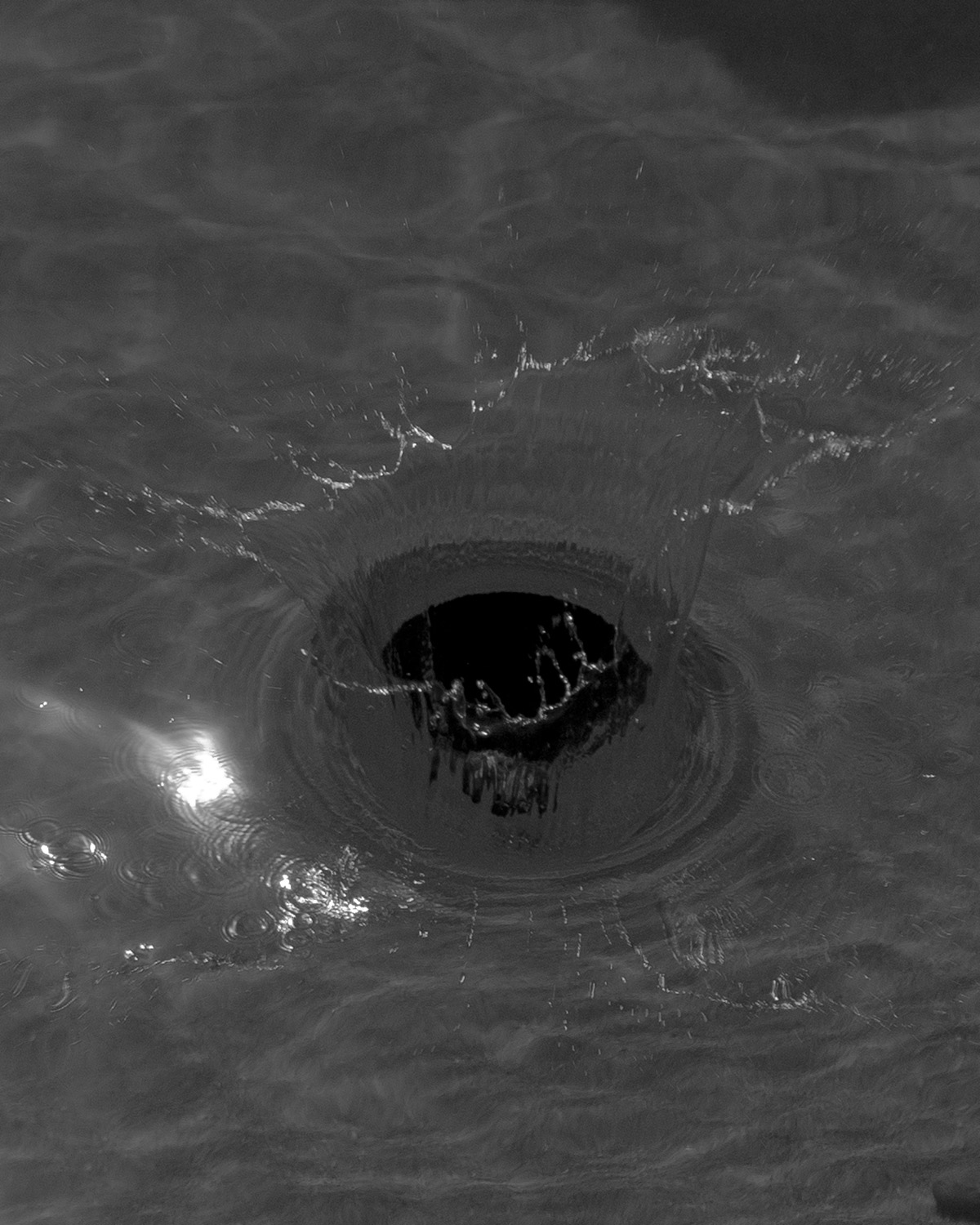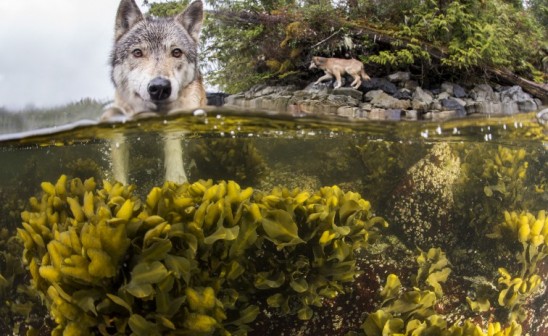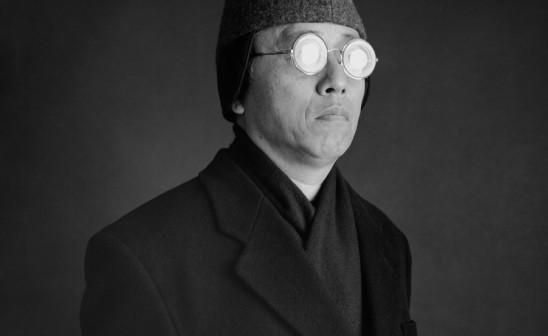Falling asleep to the sound of the sea is an incredible experience. The nights we’ve spent further inland leave us with a sense of something missing.
"The Continu_um" consists of a vast range of imagery. That’s how Alex Catt and Lola Thomas describe their photographic project. In last August, the British photographers left the UK in a van for an adventurous journey along the coastline down to Morocco. « My rough plan before we left was to stick to the coast all the way down to southern Spain, then take the ferry to Morocco and see what happens there. » We caught up with the British couple, currently in Andalusia, to discuss big tides, the absence of people, the noise of the sea, the constant flux of water, how to cook an octupus in a van, and their intimate relationship with the ocean.
When did you have the idea of leaving the UK for a trip to Morocco?
Lola Thomas - I graduated from university in 2015 and wasn’t really sure what I was going to do with life. I’ve always known I wanted to do a long trip at some point in my life so when Alex and I started thinking about going away in the van seemed like the perfect answer! We both saved up for a year then left the UK on the 8th August, 2016.
Alex Catt - I’d been wanting to make a longer trip in the van for a couple of years, prior to this I’d only done shorter trips of a few weeks at a time due to work commitments, it was an easy decision to make when Lola said she would come too!
Do you follow a plan?
LT- Not really, we had a general idea of where we wanted to go before we went away - central France, then back to the coast of France then following the coast down from there but we have mainly just been seeing what we come across as we travel. We are lucky as neither of us have a deadline for when we need to be back so it is just until money runs out and we can be so flexible with what we do.
AC- Since getting to the coast at Moliets Plage in France, we’ve pretty much followed it all the way to where we are now, which is in Andalusia, Spain. My rough plan before we left was to stick to the coast all the way down to southern Spain, then take the ferry to Morocco and see what happens there. I surf so being near the coast is good for me!
Where does the name « Continu-um » come from?
AC- It comes from an exhibition myself and a friend (Sam A Harris) had in London a few years ago. When Lola and I decided we wanted to create a platform to share our photographs we had a little brainstorm and the name came back to me, a continum is a continuous sequence, so the name fits quite well while we travel.
You’re currently travelling in a van. What does your daily life look like?
AC- I bought the van a couple of winters ago and slowly built the interior between short trips, deciding what needed to be where after spending a good amount of time in it. It’s a great home for us, everything is within reach and has it’s own place which really helps when living in a small space. I surf whenever I can, make photographs and try to eat quite well. We are both fond of food and really make an effort to eat local produce and sample regional dishes when we can.
LT- Living in such a small space is fabulous. We have everything we need and you learn to live really simply and spend most of your day outside. My life mainly consists of taking photos, reading, walking, eating good food and trying to learn to surf.
You’ve been travelling across France and Spain, and you’re currently in Portugal. Do you have any good story to tell us about your last weeks on the road?
AC- My fondest and most bizarre memory from the trip so far would have to be in Galicia, Northern Spain. We had been sleeping a stones throw from the sea with a beautiful rocky reef stretching out infront of us - there was a full moon and big tides. At low tide we ventured out onto the exposed rocks to find some mussels for dinner, a couple of old men were trying to catch octopus with these long wooden sticks, a metal hook at the end. A little time into our hunt Lola spotted an Octopus in a rock pool, so I went to tell one of the old Spanish guys he could come catch it. He did catch it, but not only that, he gave it to us! I was pretty shocked when he handed it to me (it literally stuck to my arm), he then prepared it for us (which involved throwing it against a rock multiple times to tenderise it) and then in Spanish told me how to cook it. I never thought I would be cooking an octopus in the van, it was great!
LT- Yeah, that was a really special memory for me too. It’s so great to be able to eat such fresh food that has absolutely zero air miles.
You have a very interesting way to document your travel. Either graphic, abstract, or even very natural, you kind of mix different universes within your photographic work. How would you explain your artistic approach?
LT- I suppose we are both interested in similar subjects but still look at everything in a very different way. Neither of us were that interested in photographing our trip in a conventional way and wanted it to show more than just a new lifestyle. We wanted the project to consist of a vast range of imagery so each month the series seems different but still remains a continuous project.
AC- A lot of the time we find ourselves in places that are quiet, we are lucky to be travelling South in the winter, it’s out of season for the regions we pass through which means we get to explore these beautiful places mostly alone and the weather (for us) is better than at home. I think this emptiness shows in the images we have made so far, the absence of people can alter your perception of scale within a photograph, creating unique scenes.
Shapes, shadows, birds, plants, waves, drops, trees. Most of your pictures are nature-related. Do you feel your eyes are caught by details that you would have probably missed at home?
LT- Definitely. You have much more time to look and think about everything. You have time to just go on a walk and dedicate it to just taking photographs. I always wanted to be taking more photographs at home but there always seemed to be something else. Also it helps that everything looks more interesting when you’re away from home and you are constantly seeing new things and places.
AC- In the past a lot of my photographic projects have been created around a journey of sorts, following a river, the result of driving across Europe or long walks at home. I think this time spent moving, however slowly, brings you to an interesting mindset. Of course you are easily drawn to epic landscapes which are different to those you have grown up around, but you see deeper, the time you have in places is generally longer and with less to think about; the small details become more visible and you spend more time with them.
You chose to share with us a monthly collection of photographs. Can we call it a documentary?
AC- Of course, it’s a documentary in a loose sense. It was important for us to have a platform that we could attempt to curate, the website itself gives a better impression of this. We obviously make a lot of photographs between us each month, but we try to upload them (on the website) in a way in which they flow together, like seeing images on the wall of an exhibition, or in book form. The connection between images and the ideas that these links can create, is something that interests us both. It’s a place to try out ideas, and present photographs in a new way for us both.
You said « the ocean has very much been an ever present element of our journey, never straying from it for too long. » Tell us more about the connection you have with the ocean?
AC- The ocean has many qualities, it’s a moving picture that’s rarely ever similar, let alone the same. You’re reminded of it’s power and energy each time you surf, and the sound is also something special. Since starting to surf it’s something I’ve never spent to long away from, and on this trip only a few days have been spent away from the sea.
Falling asleep to the sound of the sea is an incredible experience. The nights we’ve spent further inland leave us with a sense of something missing. The sound of the sea has so many identities, in the daytime looking out at the waves breaking, each one unique and different; the constant flux of water moving is a daydream. Come the evening the sound is amplified, when you are sleeping in such a small space like a van, outside in the elements, you almost become hyper sensitive to noise, small waves lapping the shore can sound huge, the fox running past can become a human. It’s a strange thing to get used to but the noise of the sea is something that brings a calming influence on my days.
You’ve been following the coast from the cold waters of the UK to the warmer Atlantic Ocean of Portugal. You may have a global view of what the relationship between people and the sea/ocean looks like depending on the country (or region) they live in. Have you noticed anything interesting to mention?
LT- Spain and Portugal both have such interesting relationships with the Atlantic Ocean. You have all the influence of the surf culture which is great but then you also have the old fishing communities which are still so strong. We have eaten some of the best seafood of our lives in Galicia (northern Spain) and Portugal.
AC- It’s interesting to see how people depend on the ocean in different areas, we have learnt a lot about seafood regionally, by seeing people out collecting things and speaking with them. From mussels to octopus, and the elusive gooseneck barnacles, it’s great to learn and taste what the coastline offers as we move along it. In Galicia, northwest Spain, we passed the ‘Costa da Morte’ or ‘Coast of Death’ this region was one of our favourites from the trip, it’s an area of outstanding beauty but it’s rocky coastline is one which is a frequent danger for fishermen, with many shipwrecks in this area giving it it’s name. Areas like this make you remember the power of the sea, stone crosses are seen along the coastline here to show where people died at sea.
From a surfing perspective it was really great to visit the Ericeira area of Portugal, which is the only World Surfing Reserve in Europe, a 4km stretch of coastline with 7 breaks. It’s refreshing to see the importance of this area rewarded with being made a World Surf Reserve, protecting the immediate area from construction and other risks. Portugal seemed a country that really values surf tourism and strives to make it a great destination to travel.
What will you do when you are in Morocco?
AC- I think we will head down the coast fast to catch the end of the surf season, then perhaps make our way back up slowly, heading inland to the mountains at some point - but who knows! The best thing about travelling this way is no decision is the wrong one, just a temporary diversion to where you end up.
What are your projects for the coming weeks?
AC- I’ve just published a small zine with ‘Tide Press’, entitled ‘Lost, in circles we wander', it is the culmination of photographs from the last few years. This has left me a little open project wise, I spent so long working towards that! For now, i will focus on Continu-um with Lola, when we are back we would like to make a small publication of the photographs. This should keep us busy for the foreseeable future!
Follow Lola Thomas and Alex Catt's adventures on their instagram account and website.


